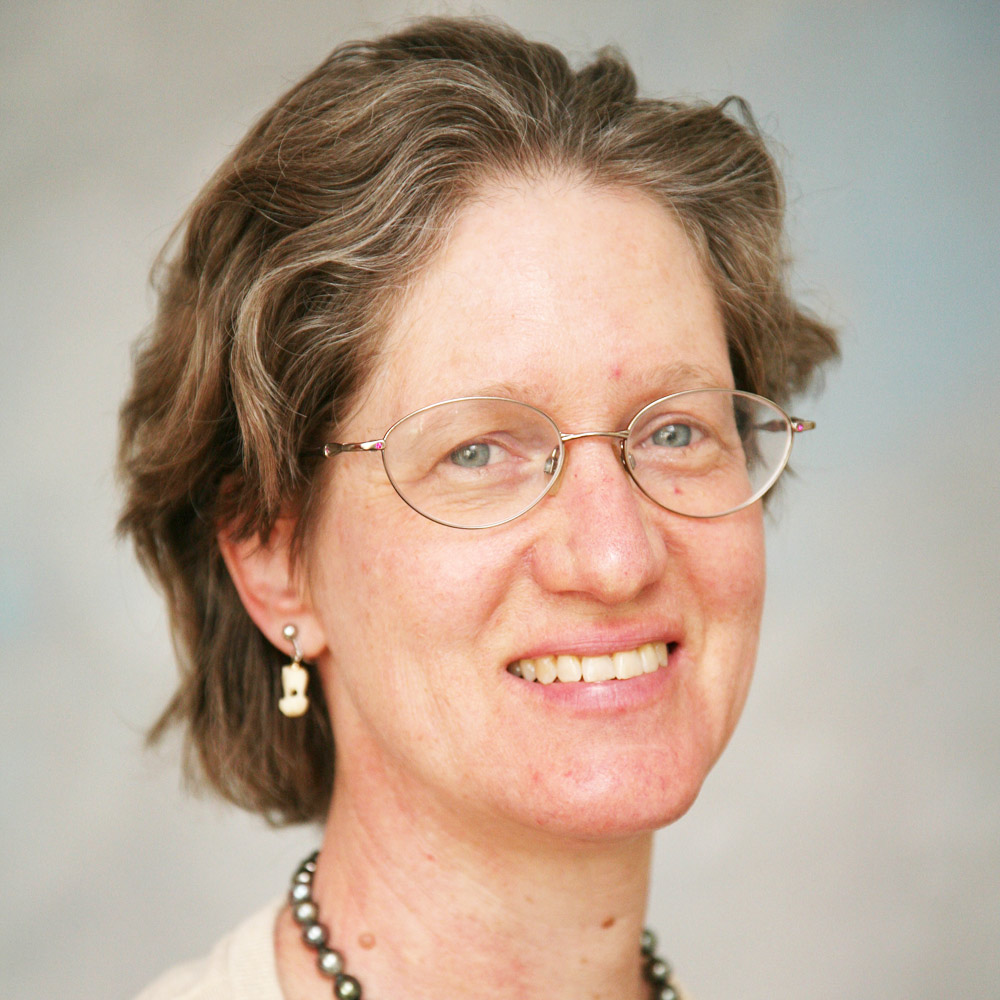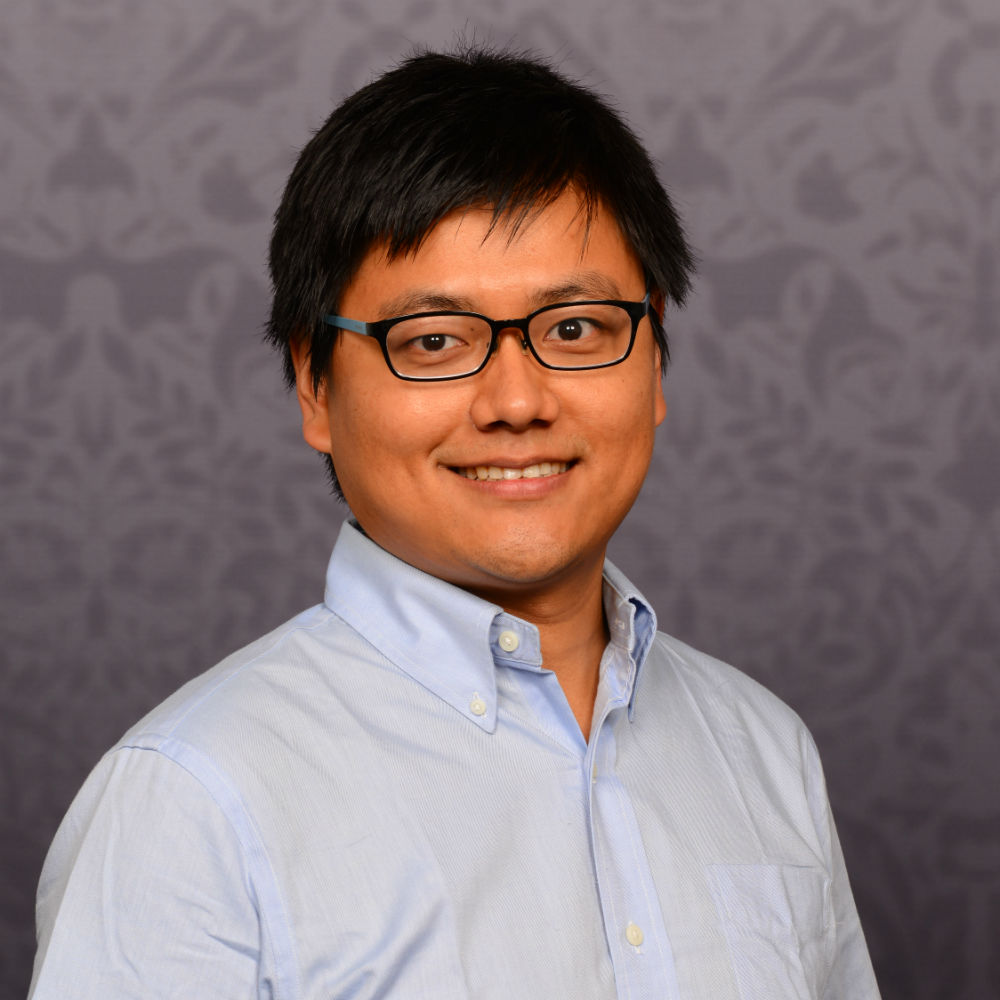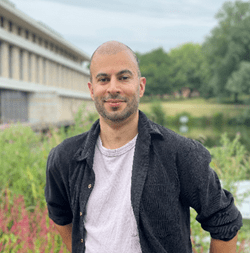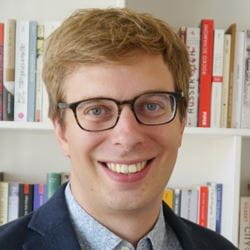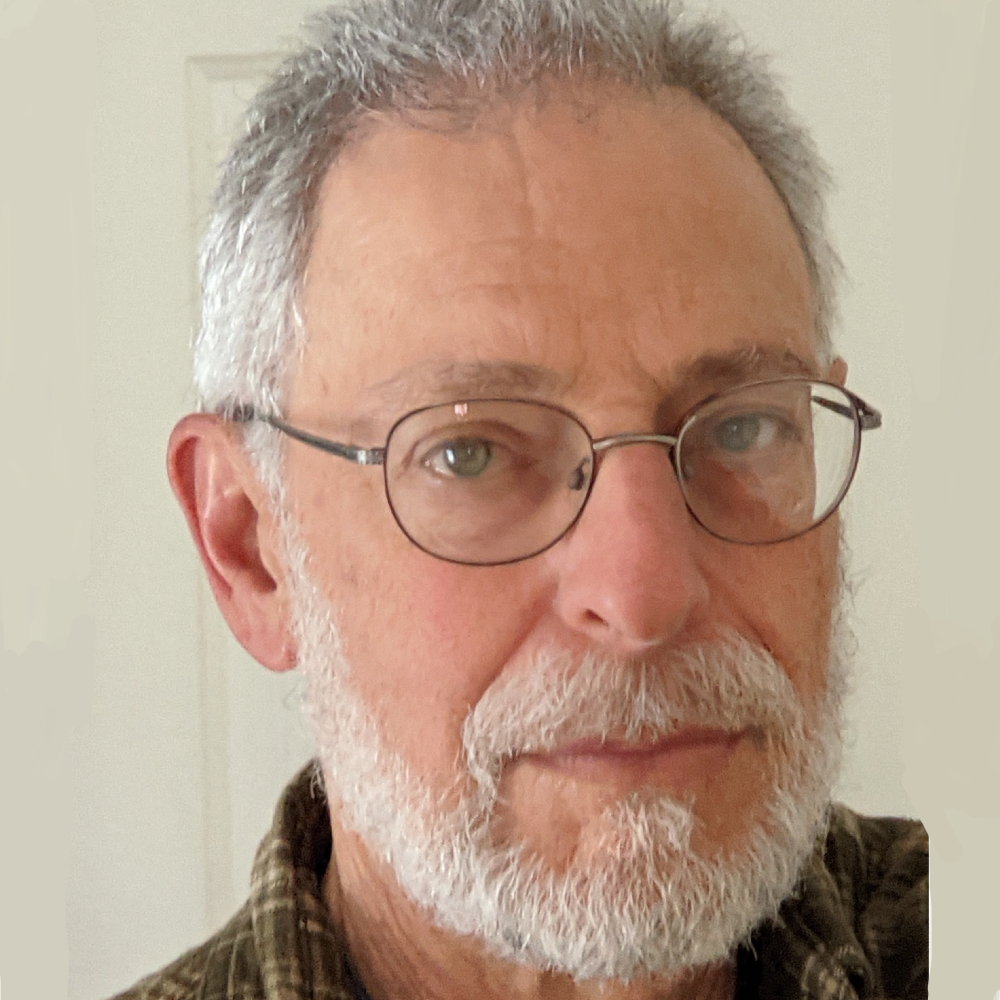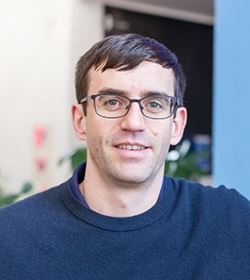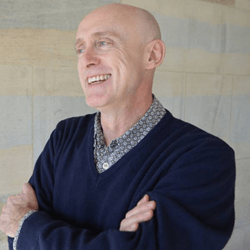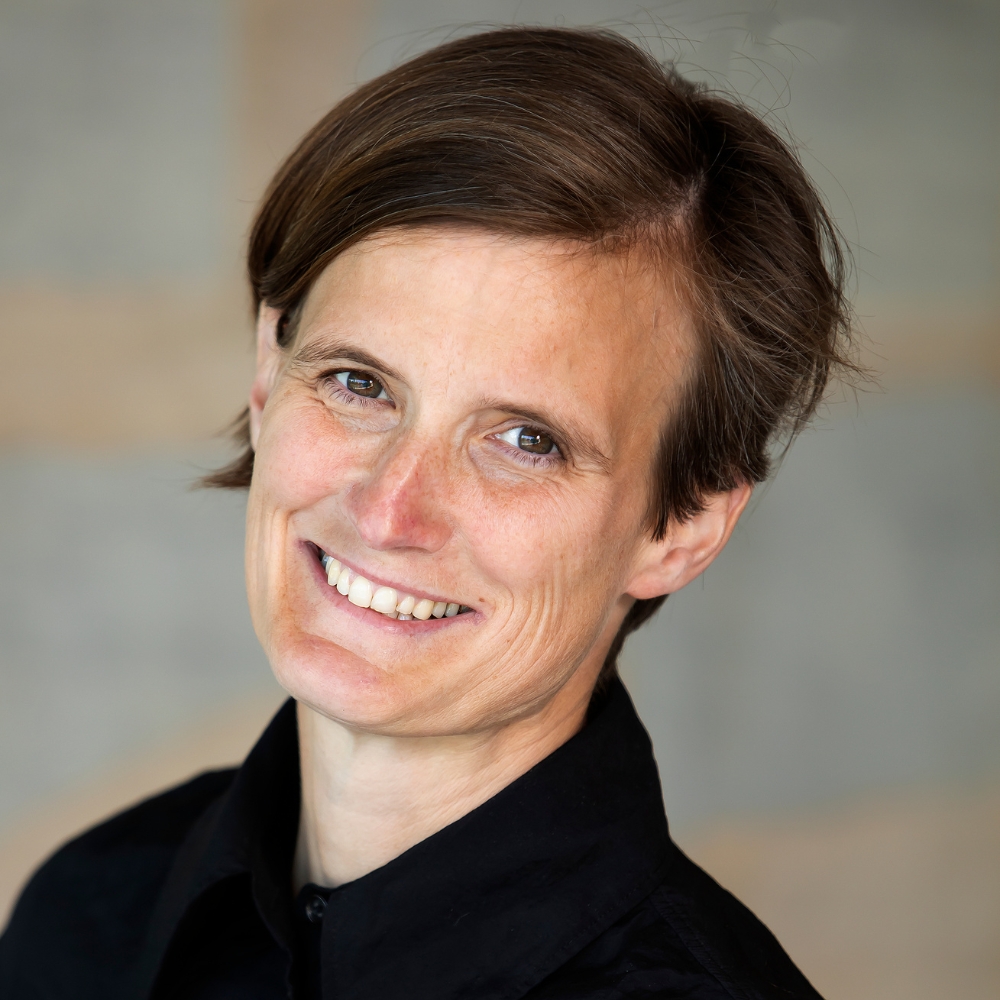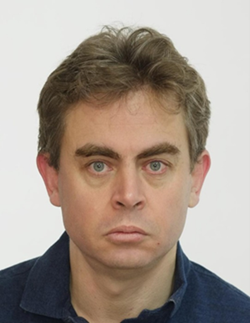Essex Economics Research Newsletter Autumn 2022

Quick Links
- Introduction
- Our Research students
- Our Academic staff
- Our Honorary staff
- Networks, conferences and workshops
- Grant Successes
Our newsletter celebrates the achievements of our research students, academic staff, honorary staff, and alumni. If you want to find more about our work please contact us through our profiles or email a.gupta@essex.ac.uk
Introduction
It is our pleasure to invite you to read our inaugural department research newsletter. Here we share the exciting research achievements and contributions of our colleagues over the past year, whether they be research students, current members of staff or honorary members. This year has been particularly special for us, with our excellent results in the Research Excellence Framework (REF): we were placed 4th in the UK for research power in economics and econometrics.
This newsletter shows exactly how our vibrant research culture has led us to these heights. Here you will read about the ambitious and topical research questions of our PhD students, the creative, influential and award-winning papers published by our colleagues and their many research grant successes. The sheer depth and breadth of research done in our department is a matter of pride for us, and we are equally proud to share this with you.
You will find members of the department crisscrossing the globe, not only invited to talk about their own research by the best institutions of many countries but also learning about developments in their fields at top international conferences. We can be found in large numbers at the most prestigious events, ensuring that our work is talked about wherever serious economics research is conducted. But we don’t just go places, you will also find us bringing the world to Essex in the form of top class international workshops featuring high quality and diverse speakers. It is this engagement and drive that makes our research environment so special, in fact recognized by being ranked 3rd in the UK in the REF.
We hope you enjoy reading about our work just as much as we enjoy producing it.
OUR RESEARCH STUDENTS
Continuing SeNSS success and placement
The department is very successful with the SeNSS DTP having achieved at least one scholarship a year since its inception, and multiple years of more than one, and 8 scholarships overall (while at least 12 applicants got scholarship offers). Two scholarships were granted in the last round.
Department students have successfully secured posts in academia and outside. Recent examples of academic posts include posts at QMUL, UCL CReAM, Surrey, Nottingham. Non-academic posts include the World Bank, Bank of Uganda.
Elena Faieta
 Elena Faieta is working on issues at the intersection of labour, regional and environmental economics. She was awarded a SeNSS DTP studentship for her PhD proposal 'Rural Labour Markets: Local Multipliers and Agglomeration Spillovers'. She is also interested in studying the extent to which renewables create jobs in remote areas. Elena works under the supervision of Michel Serafinelli.
Elena Faieta is working on issues at the intersection of labour, regional and environmental economics. She was awarded a SeNSS DTP studentship for her PhD proposal 'Rural Labour Markets: Local Multipliers and Agglomeration Spillovers'. She is also interested in studying the extent to which renewables create jobs in remote areas. Elena works under the supervision of Michel Serafinelli.
Harpreet Singh

Harpreet Singh is pursuing his PhD in areas related to Development and Applied Economics. He studies the impact of a compulsory primary schooling reform in India on school enrolment and juvenile crime. This summer he attends a Summer School at Oxford on 'Treatment Effects' and 'Development Economy'. His teaching interests as an Assistant Lecturer at Essex are in quantitative methods of economic analysis. He works under the supervision of Thomas Cornelissen.
Zhexin Feng

Zhexin Feng is working on labour and regional economics. His main research project is titled 'The Chinese Rust Belt'. In this project, Zhexin studies the heterogeneous employment consequences of shrinking manufacturing on local labour markets in particular regions of China. Despite the losses of manufacturing jobs, some cities are still able to gain growth in total employment through successful industry transformation. Digging into these differences across space and their evolution could provide valuable information for regions during similar structural change periods, especially in developing and emerging countries. Zhexin also plans to investigate other socio-economic impacts of the manufacturing decline, including migration and fertility rate. He works under the supervision of Michel Serafinelli and Yikai Wang.
OUR ACADEMIC STAFF
Dr Abhimanyu Gupta
I hosted an ESRC funded workshop on ‘Methods and Applications for Network Data’ on June 1st 2022, at the University of Essex campus. This workshop was part of my ESRC grant, titled ‘Method for Network Dependent Data’. The event brought eight speakers to our campus from all over the world and linked three strands of network research: network formation, applied studies using network data and spatial econometrics. The format of the sessions permitted both formal questions and more relaxed discussion, and many PhD students from the department attended the event. The intention was to disseminate the outputs of my grant funded research and also to foster interactions between leading researchers globally. I also gave a number of seminars internationally, particular highlights being visits to the University of Jordan in Amman, Princeton, Maryland and the very scenic campuses of the University of Colorado (Boulder) and Montana State University.
Professor Kate Rockett
Kate is working on two food-related projects with colleagues at the Kedge School of Business in France: one on price dispersion in restaurant sales of wine and another on food banks. You can learn more about the former in the VoxEU interview about the paper. The latter is the subject of a grant application through the ANR, the French national research grantor, now being considered in the final round. Kate also looks forward to being joined by Angelos Stenimachitis in the autumn, who will take up a collaborative SeNSS PhD Fellowship around the drivers of intellectual property demand, joint with the UK Intellectual Property Office and the Essex Business School. This is a homecoming for Angelos, who earned his MSc Economics with Distinction at Essex in 2013, working in the area of competition policy.
Dr Ran Gu
I published an article in the Review of Economic Dynamics in July 2022, 'Human Capital and the Business Cycle Effects on the Postgraduate Wage Premium'. The paper answers why postgraduates enjoy greater wage stability over the business cycle than those with undergraduate degrees. I presented a paper titled 'Effects of Stay-at-home Orders on Skill Requirements in Vacancy Postings' at the IZA/SOLE Transatlantic Meeting of Labour Economists in June 2022. The paper finds that containment policies during the pandemic promoted firm management style transformation to adapt to remote working schemes after restrictions are lifted.
Professor Sheri Markose
On 18 August 2022, Sheri joined Anand Sinha (Reserve Bank of India Fmr Dpty Governor) and leading experts from the IMF (Hiroko Oura), and Bank of England (Christine Jayaseelan & Glenn Hogarth) to give a lecture at the College of Supervisors of the RBI Webinar covering Systemic Risk Monitoring and Macroprudential Policy Formulations Implementing Financial Stability Mandate. Sheri urged the use of a R-number measure for financial contagion based on who-whom balance sheet interconnectedness data that was developed at the RBI while Sheri was Senior Consultant there. This can over-come ‘volatility paradox’ of the more popular market price based systemic risk measures like Co-Var & S-Risk which underestimate risk during market price booms and fail to give early warning. See, Markose et. al. 2021 publication.
Dr David Zentler-Munro
I published an article in the Journal of Labor Economics, April 2022, that looked at the impact of state level minimum wage changes in the US on both employees and the non-employed. We identified which non-employed workers would be most likely to receive the minimum wage using machine learning techniques, and found that changes in the minimum wage did not affect their participation rates in the labor market or chances of finding employment. I have also been working on a project on the impacts of the COVID pandemic recession on the UK labour market – this is joint work with colleagues at Essex (Carlos Carrillo-Tudela, Camila Comunello, Alex Clymo and Annette Jäckle) and from the University of Edinburgh (Ludo Visschers). This led to me appearing on a podcast hosted by Ed Miliband - “Reasons to be Cheerful” - that focused on the Great Resignation. You can find summaries of our work here: The Great Resignation, Rising Inactivity for Older Workers, and Job Search in the Pandemic.
Professor Thomas Cornelissen

I have a long-standing research interest in peer effects among co-workers. In ongoing work I look at the long-term career effects of having had high-performing co-workers early in one's career. In theory, high-performing co-workers can be beneficial for one’s own career (via learning from them), but they can also harm one’s career (via competition for promotion and retention in the firm). In this work we aim to provide evidence for both these channels and propose empirical strategies to disentangle them. The project recently received funding from the Rockwool Foundation. It is part of the research agenda of the newly created ROCKWOOL Foundation Berlin Institute for the Economy and the Future of Work (RFBerlin), where I will be the Project Leader on 'Knowledge Spillover and Individual Careers'. In a different line of research, I recently published an article in Labour Economics with my co-author Thang Dang, in which we evaluate how the introduction of mandatory universal primary schooling in Vietnam affected different generations. We first show how the educational expansion led to improvements in educational attainment and labour market outcomes of the generation to which the reform was targeted. We then document that the educational expansion also led to improvements in education outcomes of the children of the affected generation, and to improvements in health and financial outcomes of the old-age parents of the affected generation. This suggests that improved education not only benefits individuals themselves, but also enables them to better invest into their children and better look after their old-age parents, highlighting positive intergenerational spillovers of education.
Dr Michel Serafinelli
Michel is working on three projects at the intersection of Labour, Regional and Environmental Economics. The first one, on labour market evolutions in rural areas, is the subject of a successful application through the Leverhulme Research Project Grants scheme. Zhexin Feng, a PhD student supervised jointly with Dr. Yikai Wang, is a co-author. The second project is on tourist attractiveness and the local labour market, joint with Professor Marco Francesconi. It was recently presented at the Bank of Italy, Halle Institute for Economic Research, Universita' Svizzera Italiana, and ESPE. The third project focuses on green labour demand. Specifically, Michel and his co-authors at WU and JKU create a measure of green vacancies, defined as those that require environmental skills. They then study the determinants of changes in green labour demand, and their effects on the local economy.
Dr Xiaoyu Xia
I recently published two articles on Chinese economy. The first article is titled 'A matching model of co-residence with a family network: Empirical evidence from China', published in The Economic Journal with my co-authors Naijia Guo and Junsen Zhang. This article develops a bilateral matching model to solve the intergenerational co-residence problem, using China as an example. The model in this paper creatively captures the competition between adult children and between parents and parents-in-law. The second article titled 'Heterogeneous firm responses to increases in high-skilled workers: Evidence from China's college enrolment expansion' is published on the Chinese Economic Review, co-authored with Shuaizhang Feng. In this article, using local-labour market data on the composition of the labour force combined with detailed firm-level data covering the period of a large-scale expansion of college enrolment in China, we identified within-firm adjustments to labour market changes and found that there were significant adjustments in capital and R&D within-firms in response to an enlarged college-educated labour force.
Dr Lukas Altermatt
Two of my papers have recently been accepted for publication in academic journals. The first, to be published in the International Economic Review, studies how monetary policy is transmitted through the banking system and rationalises why inflation remained low after the financial crisis of 2007-09 despite an unprecedented growth in the monetary base. It also discusses how helicopter money can be used to increase inflation at the zero-lower bound. The other paper, which is written jointly with Christian Wipf, who was also a member of the economics department at Essex during the last academic year, has been accepted at the Journal of Money, Credit and Banking. In this paper, we investigate optimal monetary policy, and find that inflation rates above the Friedman rule are optimal if and only if there is a Mundell-Tobin effect, i.e., a positive relation between inflation and capital investment. I have also recently participated in a conference at the Board of Governors of the Federal Reserve System in Washington D.C. There, I presented a paper on the coexistence of multiple liquid assets and what that implies for the macroeconomy and monetary policy, while my co-author Hugo van Buggenum presented our joint paper on how systemic bank runs can lead to a misallocation of liquidity and a fall in aggregate demand, and how this alters the effectiveness of commonly used policies to prevent bank runs.
Professor Daniel Friedman
During academic year 2021-22, I gave several talks to economics audiences including three plenary talks at venues ranging from Maastricht to the Galapagos Islands. Of my four co-authored papers accepted for publication last year, perhaps the most unusual was 'A Simulation Study of How Religious Fundamentalism Takes Root' in the Journal of Economic Behavior and Organization. The project started at Cambridge University several years ago over lunch with Sriya Iyer (Economics) and and Chander Velu (now in Engineering). We wondered why most major religions, including those in which we had been raised, had given birth to extreme fundamentalist movements (e.g., Jewish Haredim, South Asian Hindutva). We decided to investigate by writing a simulation program, drawing on the expertise of their astrophysicist colleague Jonathan Gair, now at the Albert Einstein Institute in Potsdam. As the simulations took shape, they hired PhD student Bartosz Redlicki (now at Compass Lexicon in Brussels) to gather background material e.g., on the early 20th century US Evangelical movement and the origins of Shia theocracy in Iran, and I hired PhD student Jijian Fan (now at Zhejiang University) to run large batches of simulations. Everyone contributed through several cycles of refining the simulation code and interpreting the results. With so many co-authors it was a slow but rewarding process. Eventually we came to understand that the main forces propelling fundamentalism in the modern world include weaker attachment to the peer group (as in “bowling alone”), greater real income, and less substitutability between religious and secular goods, and arguably also higher relative prices for secular goods and lower tolerance. Surprisingly, our model suggests little role for the rise of long distance communication and transportation.
Dr Nicholas Reynolds
Nick has been working on a number of projects studying a decline in the health and human capital of American-born cohorts born after 1947 and on a project using patent data to study innovation. He has received an invitation for a 2nd round revision at the Journal of Human Resources for a paper titled 'Increased Mortality of White Americans and a Decline in the Health of Cohorts Born after World War II'. He presented joint work with Jeffrey Lin and Bryan Stuart (Federal Reserve Bank of Philadelphia) titled 'Life expectancy at working ages declined for American cohorts born after 1947' at the 6th Human Mortality Database Symposium hosted at INED in Paris. He’s made progress on a number of other projects: a follow-up to prior work studying “multiple invention” which was published in the American Economic Journal: Applied in 2020 with collaborators Jeffrey Lin and Ina Ganguli (University of Massachusetts, Amherst); a methodological extension to his paper 'The Broad Decline in Health and Human Capital of Americans Born after 1947', which received very useful feedback at the Essex Applied Economics Internal Workshop; and a BA-Leverhulme-funded project titled 'Why Did Health and Human Capital Decline for Americans Born after 1947, and Was There a Similar Decline in the United Kingdom and Canada?'
Dr Andreas Mueller
Andreas has published two articles since last Autumn. Class Altruism and Redistribution is co-authored with David Juarez-Luna (PhD Essex Economics) and Christian Ghiglino (Essex Economics) and appeared in the November 2021 issue of the Economic Journal. The article explores theoretically and empirically how social identity and ethnic fragmentation affect income redistribution. A Theory of Structural Change That Can Fit the Data appeared in the April 2022 issue of the American Economic Journal: Macroeconomics. The article is co-authored with Simon Alder and Timo Boppart and shows theoretically and empirically how the observed structural change in consumption expenditure in the USA, UK, Canada and New Zealand are shaped by the process of economic development. Over the summer Andreas has presented ongoing work at the Workshop on Micro and Macro Perspectives on Structural Change in St. Gallen and the European ESA Meeting in Bologna. He is also the organiser of the University of Essex staff basketball. If you’d like to join the group for the upcoming autumn term please send an email to andreas.mueller@essex.ac.uk.
Professor Marco Francesconi
I am currently working on a variety of projects which, in different ways, deal with inequality. One is with Astrid Kunze at the Norwegian School of Economics in Bergen and colleagues from other universities worldwide, where we focus on how firms can induce gender inequalities by responding to policy changes that are designed to improve women’s economic position, such as parental leave reforms. Another series of projects is done in collaboration with Nicola Barban and Elisabetta De Cao, both at the University of Bologna, and focuses on how genes and the environment (e.g., the education distribution and contraceptive pill usage through time) interact to affect differences in fertility behaviour of men and women. A third strand of research is on how the Welsh minimum unit pricing on alcohol and lockdown policies introduced as a result of the Covid-19 pandemic have affected domestic violence.
Professor Tim Hatton
Tim Hatton will give a keynote address to the OECD’s Expert Group on Migration at a meeting on 12th October to mark its 50th anniversary. Drawing on his own research and that of other economists over 30 years, he surveys the key results and their implications for immigration policies. Economists have found that the positive effects of migration generally far outweigh any negative effects. But these results have had very limited impact on the formation of immigration policies. Over the long-run, public opinion on immigration has not become increasingly negative, but the rise in political populism has helped to raised its salience as a policy issue. Hatton goes on to examine ways of framing immigration policies that would expand the benefits of immigration while seeking to navigate public concerns.
Professor Simon Weidenholzer
I have been working together with co-authors from Essex and other institutions on a variety of projects that seek to understand how investor behaviour is changed by recent innovations in Fintech, such as robo-advising and copy trading. This work is supported by an ESRC grant and aims to highlight potential advantages and pitfalls of these new technologies for consumers. For instance, we have found in a large online experiment that automated advice given by an algorithm (so-called robo-advice) leads to better financial decisions but may not necessarily lead to increased participation in financial markets, as advocated by its proponents. Further, copy trading platforms – these are social networks similar to Facebook with the option to monitor and copy other participants- may lead to excessive risk taking. We anticipate that these findings will help policy makers to gauge their optimal approach towards new innovations in Fintech.
Dr Yikai Wang
Yikai has been working on projects related to inequality, taxation, labour markets and COVID, with co-authors at Essex and other institutions over the world. He and his co-authors use computational macroeconomic models to study the impacts of inequality on the economy and households’ welfare, and design optimal taxes --- labour, capital taxes and transfers --- and labour market policies --- unemployment benefits and pensions --- to reduce inequality and improve social welfare, while maintaining efficiency of market and economy. Together with researchers from computer science department at Essex, Yikai also explore frontier technology such as machine learning to analyse data, and solve important economic models that could not be solved before using traditional economic approach, e.g., optimal policies with heterogenous agents.
Dr Christoph Siemroth
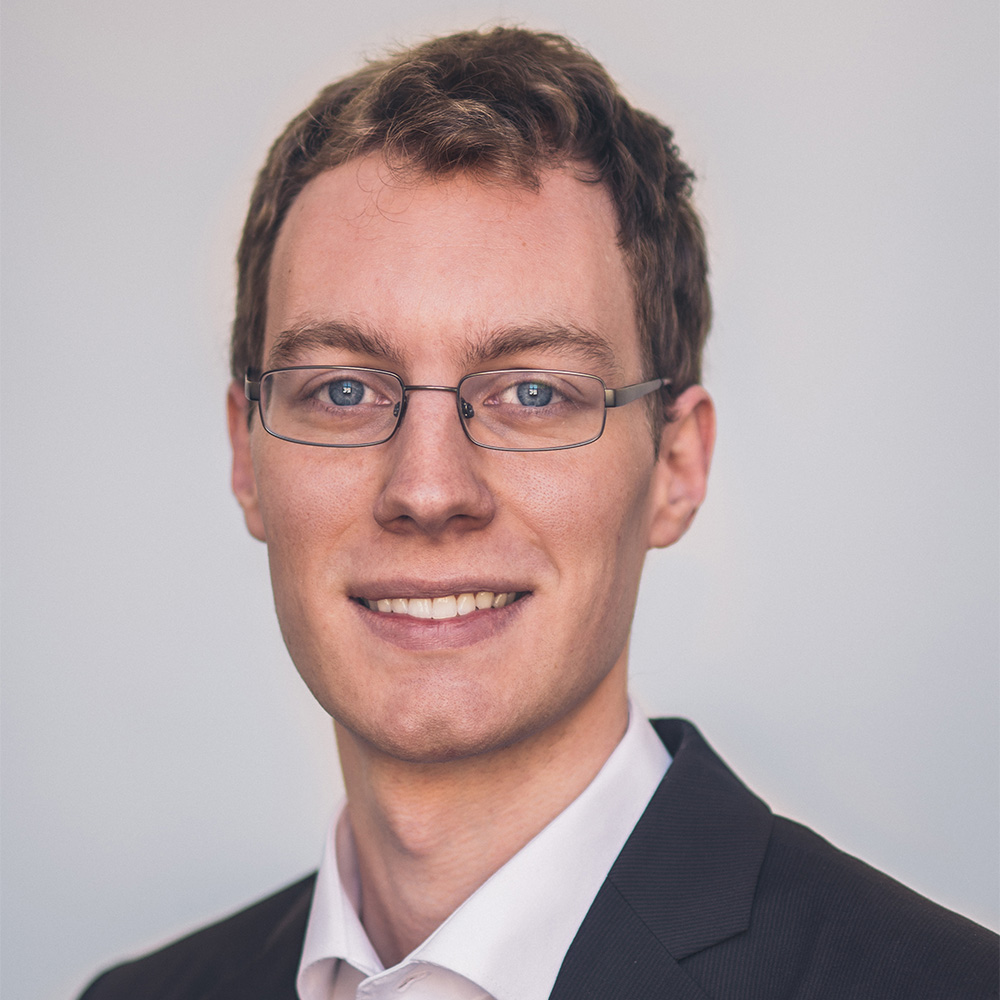 With his co-author Lionel Page (Queensland), Christoph received the Vernon Smith Excellence Award from the Society for Experimental Finance, which recognizes an important publication in the field. The study finds that financial market prices reflect less information about fundamentals than previously thought. Another research paper with colleague Friederike Mengel (Essex) and Michael Gibbs (Chicago) was the very first to be accepted for publication by the new Journal of Political Economy Microeconomics, with its first issue coming out in January 2023. This paper investigates the productivity effects of work from home in a large IT company. Finally, Christoph succumbed to peer pressure and joined Twitter, with intentions to promote research but quickly learning that economists talk more about their breakfast or cat than economics. He is curious how long it will take until the first “sewage storm” hits.
With his co-author Lionel Page (Queensland), Christoph received the Vernon Smith Excellence Award from the Society for Experimental Finance, which recognizes an important publication in the field. The study finds that financial market prices reflect less information about fundamentals than previously thought. Another research paper with colleague Friederike Mengel (Essex) and Michael Gibbs (Chicago) was the very first to be accepted for publication by the new Journal of Political Economy Microeconomics, with its first issue coming out in January 2023. This paper investigates the productivity effects of work from home in a large IT company. Finally, Christoph succumbed to peer pressure and joined Twitter, with intentions to promote research but quickly learning that economists talk more about their breakfast or cat than economics. He is curious how long it will take until the first “sewage storm” hits.
Professor Friederike Mengel
I have been busy working on my ERC funded project on Opinion Dynamics. Together with my co-authors we study how people form beliefs and opinions and how they spread through social networks or aggregate in committees. Ultimately we are interested in how these beliefs impact economic outcomes e.g. in labour markets. I gave a few keynote lectures on this topic over the last few months including at MBEES in Maastricht or at the ESA North American meetings in Arizona. Unfortunately I couldn’t attend the ESA European meeting this summer with my colleagues. I have also done some work on productivity in the home office (together with Christoph – see above). We found that at least for IT professionals productivity decreases in the home office, as they work longer hours to achieve the same outcomes. Opinion Dynamics will also keep me busy in the next few months, but I will also work on stereotyping, diversity in committees and the impact of working from home on innovation.
Dr Dennie van Dolder
I moved to Essex from the Vrije Universiteit Amsterdam in October 2021. Since joining Essex, two of my papers were accepted for publication. The first, 'Does Losing Lead to Winning? An Empirical Analysis for Four Sports', will be published in Management Science. In it, my co-authors and I try and fail to replicate the seminal finding in the behavioural science literature that being slightly behind in a competition can actually be beneficial. We do so using data from American Football, Australian Football, Rugby, and Basketball matches. Click here for a short summary. The second paper, 'Nudging Student Participation in Online Evaluations of Teaching: Evidence from a Field Experiment', was published in the European Economic Review. In it, we try and fail to increase student participation in online teaching evaluations by employing behavioural nudges. This adds to a growing literature that suggests that these nudges may not be as impactful as previously thought.
I am also the director of ESSEXLab, the behavioural laboratory at the Faculty of Social Science. I oversaw the reopening of the laboratory (after Covid) and the installing of new state-of-the-art biometric equipment in the lab. Furthermore, I organised several academic events where experimental social scientists from across the university could meet, learn about the laboratory, and discuss research. Contact me if you are interested in using the laboratory in your research: d.vandolder@essex.ac.uk.
Professor Daniel Garrett
I joined the University of Essex last year and have been working on topics in dynamic mechanism design and dynamic contracting. This is supported by an ERC Starting Grant that I was able to bring with me from my previous position at the University of Toulouse Capitole in France. The work is theoretical, focusing on the predictions that can be made by an economic theorist about the evolution of long-run relationships. Part of what makes this an intriguing area is the mathematical complexity of designing optimal long-run agreements. These agreements can be in different settings such as employment relationships between a firm and its workers or sales relationships between a firm and its suppliers or buyers. The theoretical study of these questions is quite abstract – drawing out the nuanced mathematical implications of even the simplest models of dynamic interactions. Such implications can then often be compared to actual behaviour to understand insights that models can provide about reality, as well as to understand those predictions which match less well and can suggest the need for revised models. Part of the importance of the grant is to help with the sharing of ideas, for instance being able to invite academics with an interest in these areas to the University of Essex.
Professor Carlos Carrillo-Tudela
 My research has recently focused on investigating whether individuals’ decisions to change careers, as measured by occupation mobility, can influence the behaviour of aggregate unemployment and earnings risk over the business cycle. My paper 'Unemployment and Endogenous Reallocation over the Business Cycle' which has been (conditionally) accepted for publication in Econometrica shows that the unemployed workers’ decisions to change occupations is key to understand the behaviour of unemployment over the business cycle is highly volatile and persistence over the business cycle and why we observe a large increase in long-term unemployment during recessions. At its heart these workers face an important trade-off when deciding to reallocate. Should they wait for jobs to reappear in their previous occupation and risk extending their period in unemployment or do they change occupations risking losing accumulated skills, lower job stability and lower earnings. My research shows that workers tend to prefer the former in recessions, creating volatility and persistence unemployment. In follow up work 'Cyclical Earnings, Career and Employment Transitions' I show that this trade-off is also important to understand when we observe larger earnings losses and smaller earnings gains during recessions. This work has been the basis for work undertaken as part of my ESRC funded research project 'The impact of Covid-19 on unemployment and earnings inequality'. Those interested in finding more about this project visit the project website.
My research has recently focused on investigating whether individuals’ decisions to change careers, as measured by occupation mobility, can influence the behaviour of aggregate unemployment and earnings risk over the business cycle. My paper 'Unemployment and Endogenous Reallocation over the Business Cycle' which has been (conditionally) accepted for publication in Econometrica shows that the unemployed workers’ decisions to change occupations is key to understand the behaviour of unemployment over the business cycle is highly volatile and persistence over the business cycle and why we observe a large increase in long-term unemployment during recessions. At its heart these workers face an important trade-off when deciding to reallocate. Should they wait for jobs to reappear in their previous occupation and risk extending their period in unemployment or do they change occupations risking losing accumulated skills, lower job stability and lower earnings. My research shows that workers tend to prefer the former in recessions, creating volatility and persistence unemployment. In follow up work 'Cyclical Earnings, Career and Employment Transitions' I show that this trade-off is also important to understand when we observe larger earnings losses and smaller earnings gains during recessions. This work has been the basis for work undertaken as part of my ESRC funded research project 'The impact of Covid-19 on unemployment and earnings inequality'. Those interested in finding more about this project visit the project website.
Networks, conferences and workshops
Centre for Social and Economic Network Analysis (SENA)
Networks have become associated to research with major impact, media coverage and student interest in a variety of fields. Network analysis is naturally interdisciplinary. Typical networks that underlie social science phenomena include friendships among individuals, innovation spill over across firms, input-output production linkages and supply chains, international trade flows, and over-the-counter trades between banks.
Three years ago, we realised that the University would benefit from a multi-disciplinary group for the study of networks, so SENA was born. Its aim was to be a focal point of network research at the University of Essex and to increase the visibility of our network research. The centre capitalises on the established tradition of social science research already taking place at the University of Essex.
The purpose of the centre is to organise international workshops and conferences as well as multi-disciplinary internal workshops on specific themes. Further, the centre also aims to coordinate links with local government and the industry and thus improving the impact of network research, whilst helping to sustain quality programs by leveraging the strengths of our research.
Despite the challenges posed by the pandemic, SENA organised talks by Sanjeev Goyal, Yikai Wang and Suanna Oh. among others. In July 2022, SENA organised a workshop on financial networks, a happy and fitting event as the world reconnected. The scientific organisers of the workshop were Piero Gottardi and Lukas Altermatt from Essex, as well as Ji Hee Yoon from UCL. Several leading researchers from top US and European academic institutions visited Essex to discuss their latest work.
Topics covered in the workshop include the effects of various frictions on trade in decentralised financial markets, financial innovation, the benefits of centralised vs. over-the-counter markets and the effects of asset liquidity on asset safety and on dealer funding. The workshop was designed in a way to maximise interactions among participants and foster the development of new research collaborations by allowing for extended discussions during and after presentations.
Essex Economics at the EEA ESEM 2022 in Milano
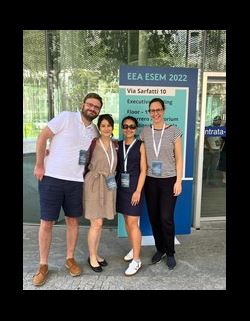
This year at the European Economic Association-Econometric Society European Meetings in Milan, 8 members of our department have presented their research in various sessions. This is one of the largest and most prestigious conferences in economics. Here is a summary of our presentations:
- Lingqing Jiang presented evidence on the persistent effects of a behavioural intervention in voluntary blood donations from a large-scale field experiment. Using a natural experiment, she identifies state dependence as the underlying mechanism.
- Elif Kubilay presented the long-term results of an educational intervention conducted in Turkey to build inter-ethnic cohesion in public schools. The results show that even 2.5 years after the intervention, children in the treatment group are more likely to build inter-ethnic friendship ties and have higher perspective taking skills.
- Quentin Lippman presented his joint work with Khushboo Surana (University of York) on couples and family. They digitised over a million matrimonial ads from Canada, France, and India over the period 1950-1995. They show that the importance of economic criteria has declined at the expense of personality in these two Western countries, whereas in India, partner preferences remained stable.
- Lukas Mayr presented “a robust theory of optimal capital taxation” according to which optimal capital tax rates can be expressed by a simple formula that holds across a battery of benchmark macroeconomic models. Applying the formula to US data shows that if the government cared only about the very poorest, the capital tax rate should be much higher than the status quo, whereas the current system is about optimal from the perspective the upper middle class.
- Christoph Siemroth presented research in the EEA's public sector spending session. He proposed a new solution to the problem of wasteful year-end spending just before annual budgets expire.
- Aseem Patel presented his ongoing research on the role of automation in the labour market. He shows that firms that automate improve their productivity, steal business from their competitors and increase their market power.
- Lisa Spantig presented an experiment conducted within a company. The study examines how employees perceive an incentive scheme set by a manager to increase cooperation, i.e., whether incentives may signal low cooperation rates.
- Bin Yu presented a paper studying how Germany’s trade integration with China and Eastern Europe has affected German firms.
2022 European ESA Meeting in Bologna
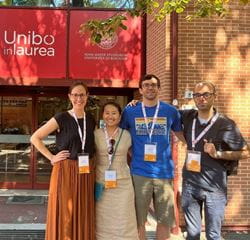
- At this year’s European Economic Science Association (ESA) Meeting at the University of Bologna, several members of the economics department have presented their research papers. Among them (from left to right in the picture):
Lisa Spantig presented an experiment conducted within a company. The study examines how employees perceive an incentive scheme set by a manager to increase cooperation, i.e., whether incentives may signal low cooperation rates. - Lingqing Jiang presented a paper that exploits a natural experiment on a large online community to identify the causal effects of having exposure to additional peer groups on the pattern of information exchange.
- Andreas Müller presented his work in a parallel session on Voting and Redistribution along with four other speakers from the University of Adelaide to the University of Zurich. He talked about how social identification of voters helps to better explain the observed pattern of income redistribution across and within countries. The presented paper is titled 'The Dynamics of Social Identity, Inequality and Redistribution' and is co-authored with Christian Ghiglino from Essex Economics.
Ahrash Dianat presented the results of a lab experiment that investigates whether the “simplicity” of an electoral voting system affects its performance.
OUR HONORARY STAFF
Prof. Pierre Régibeau
Pierre is serving at the European Commission as Chief Economist in DG Competition, although he returns to Essex for lecturing and other student-focussed work. He has worked on research projects that have generated policy-relevant research in the past year. For the Peterson Institute for International Economics, an independent, nonprofit and nonpartisan research organization, he has analysed control structures of supply chains for minerals critical to green energy, joint with co-authors Mazarei, Reeneboog, and Leruth (also formerly of Essex). He has produced two handbook chapters, one explaining the economics and policy of mergers in plain language, joint with Hans Zenger, and a second on Killer Acquisitions, where he and co-author (and former Essex student, now at Queen Mary) Ioannis Kokkoris bust several empirical myths about these types of acquisitions. Both chapters are forthcoming with Edward Elgar in the Research Handbook on Global Merger Policy. His piece with Rockett (currently at Essex) on Mergers and Product Innovation: Seeds and GM Crops with Cambridge University Press in an edited volume entitled Global Value Chains and Competition Law, is now available and has recently been presented as part of a BRICS competition law conference. In more condensed form, he has written on the robustness of the recent Google-Fitbit decision in VoxEU.
Grant Successes
| Name | Project | Grant |
| Thomas Cornelissen | Knowledge Spillover and Individual Careers. In partnership with University College London. | Funded by the Rockwool Fonden (The Rockwool Foundation) |
| Ben Etheridge | Worker Adaptation to Working from Home during and after Covid-19 | Funded by the British Academy |
| Daniel Garrett | Dynamic Mechanisms (DYNMECH). | Funded by the European Commission. |
| Abhimanyu Gupta | Nonlinear spatial dynamic panel data models. | Funded by the British Academy |
| Sheri Markose | AI, Cyber Risks and Data Science for FinTech and Digital Economy. In partnership with Indian Institute of Management Ahmedabad, Institute of Development Studies Kolkata, Indian Institute of Technology Madras, Chennai Indian Institute of Management, Khozhikode. | Funded by the British Council. |
| Michel Serafinelli | Labour Market Evolutions in Rural Areas Towns. | Funded by the Leverhulme Trust |


